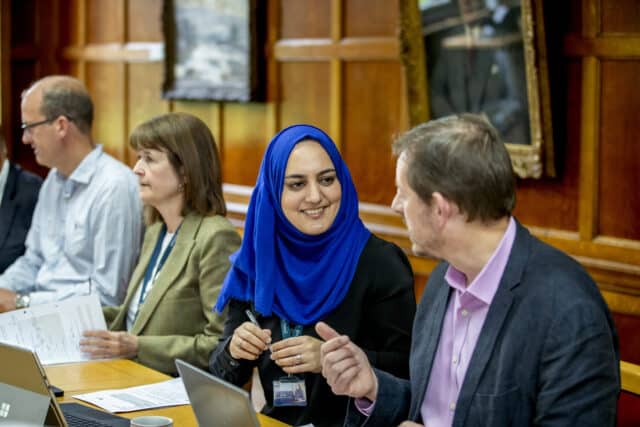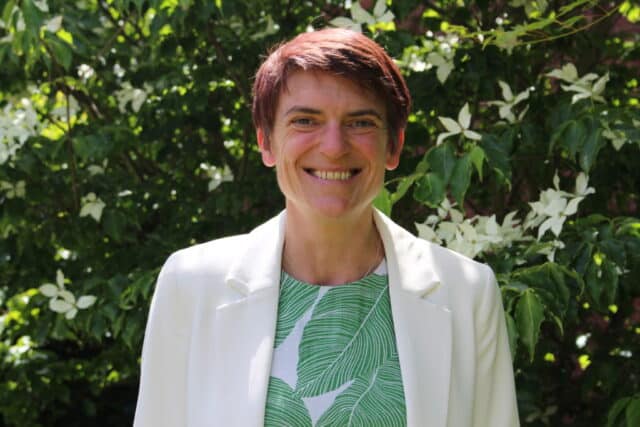Blog
Let Your Life Speak

Dr Deneal Smith
Head of Bootham School
Read the blog
‘Let Your Life Speak’ is one of those phrases which for me has increasing resonance in our schools. It represents all we should be doing in education – asking our students to make the very best of the opportunities open to them, not just for themselves and their loved ones, but also in giving back to their communities in whatever way can make the most positive impact.
At Bootham we are fortunate to be building on two centuries of the school’s own history as well as four centuries of Quaker tradition. Coined in those early days by George Fox, one of the founders of the faith, ‘Let Your Life Speak’ is one of a number of key testimonies that inform our practice at Bootham, alongside the essential tenets of Simplicity, Truth, Equality, Peace and Sustainability – the Quaker STEPS.
This year we have launched a new programme for our Year 10 students which, for an hour a week, asks them to consider how they will make their own lives speak. We begin with a sequence of speakers who will help us reflect on different causes and experiences which historically have had links to Quakers. You do not have to be a Quaker to appreciate these messages – these days 97% of our students would describe themselves as having other faiths or none.



Chris Worrall from Oxfam – a charity founded in part by Quakers – recently spoke to the year group about Climate Justice – the area in which he is Oxfam’s UK lead. The question left with the year group was ‘What can we do?’ Amnesty International and The Joseph Rowntree Foundation are other organisations with Quaker roots, whom we will also hear from during the programme.
Later in the term there will be talks on ethical capitalism, as exemplified by the Cadbury and Rowntree families (Quakers again – they pop up throughout this paragraph) and the efforts they put into dignified housing for their factory workers in Birmingham and York. The founders of the banks Barclays and Lloyds achieved their early success in business by being known for the integrity that the faith demands. The Retreat, in York, was the first humane hospital for mental health in England, founded by William Tuke: for our young people, these histories could not be more relevant to today’s concerns about mental health crisis. Elizabeth Fry – the woman you may recollect from the reverse of the £5 note back when we used money instead of contactless – led the cause of prison reform in the nineteenth century. A few decades before, Quakers had been the drivers of the abolition of the slave trade, enlisting William Wilberforce in part because they were barred from Parliament at that time.
All these stories are as relevant to now as they were when they were the current affairs of the day. These people made their lives speak in different ways and had significant impacts on those around them – providing business, work and homes; campaigning for justice; easing the lives of those less fortunate than themselves. While we feel lucky to have the heritage of Quakers to draw upon – which is particularly visible in York – every school can develop a programme which links to its local heroes or faith background.
The programme encourages our students to take a more active interest in the world and see how they might – in the decades to come – influence their communities, locally nationally or even internationally. A number of influential people must arise from this generation in the coming decades: ‘Why not you?’ we ask them.
Allied to the speaker programme we are providing introductions to those subjects that students can choose for A-level with little real appreciation of what they are about. Short courses in Psychology, Politics and Economics link back to the programme of speakers as well as giving a glimpse of what these subjects are like in Sixth Form. To have some kind of grounding in these subjects seems essential in today’s world.
The year concludes with short projects focused on one of the themes explored, supported by bespoke study skills sessions. These will prepare students to gather relevant information, select the key themes and present it lucidly on paper or before an audience. Academic confidence, the ability to speak clearly, concisely and using both plain speaking and the right technical language is a large part of what we are trying to draw out our students through this part of the course. As independent schools, we have the freedom to innovate in these ways and develop our future students, citizens and employees; providing each with the skills, knowledge, compassion and integrity to face the challenges that will be coming their way.
We want every single student to leave Bootham believing – knowing – that they can let their life speak and make that positive difference, for themselves and for all of us.


